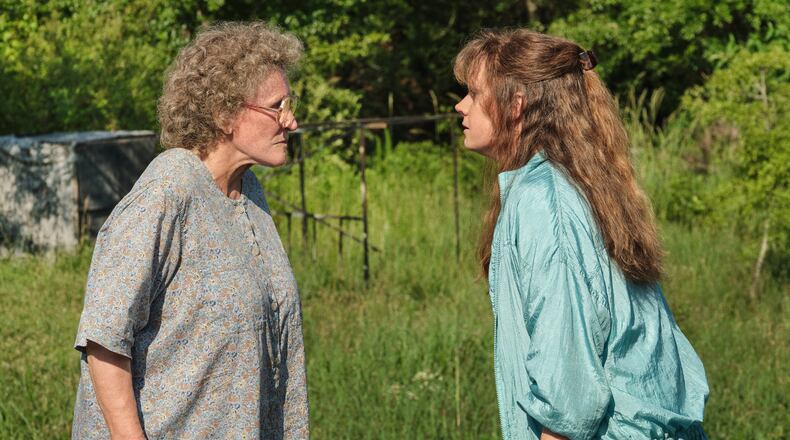The book and movie area about his life and how he overcame socioeconomic struggles and Appalachian roots to obtain his education and a career as a venture capitalist.
Kevin Wall, Republic Theater Group’s marketing director, said the company opted to tie in a food drive for the Hope Shelter, asking patrons to donate two cans of food. Netflix allowed the theater to charge its special Tuesday night ticket of $5 to see the movie, which is now at select theaters and will debut on Netflix on Nov. 24.
“We had 211 people socially distanced to watch the movie on three screens,” Wall said. “People were excited to watch it. We also had people who did not come in to see the movie but were dropping off boxes and bags of food.”
He did not have a count of how much food was collected at Tuesday’s screening.
Local social media reaction was mixed after the showing.
"I haven’t seen the movie yet, although I do intend to watch it on Netflix, but every review I’ve read of it has said it has caricatures not characters and is the worst film of Ron Howard’s career, said resident Duane Gordon.
Joseph Cox, who attended the Tuesday screening, said on a Facebook post, “Overall. I am really disappointed in the film. It’s not a bad film (per se). But it’s a tone deaf representation of Appalachian heritage. Set in Middletown which isn’t Appalachia.”
He said the movie made Middletown unrecognizable and there was no real mention of the actual Appalachian values some of our citizens hold dear.
“It’s liberal Hollywood elitism peeking into a saturated version of southwestern Ohio culture, pretending it’s Appalachian, and almost as if the people are zoo animals for them to ogle at and feel like they can actually understand and empathize with,” Cox said. “... I’d love to know if (Glenn Close’s) portrayal was accurate.”
“I saw the pre-screening last night,” said Michael Alan Pruett. “The movie only really deals with generational addiction and abuse. Everything else is just the setting.”
About the Author

